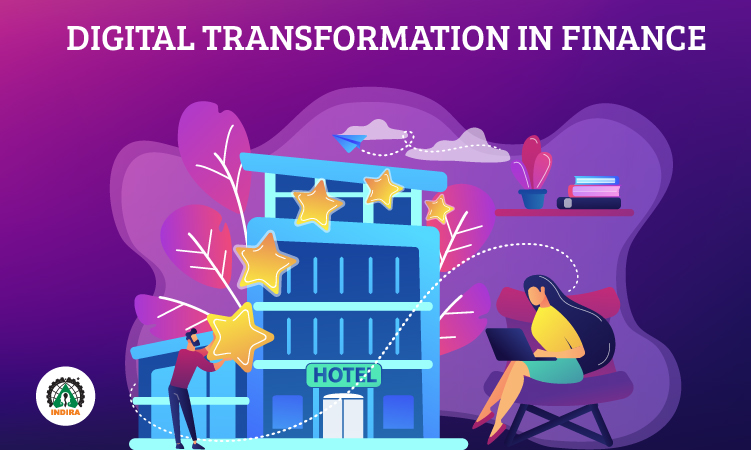Published on August 12, 2020

“Digital used to be about coding and IT, now it’s becoming a people business” Mary Kate Loftus
Digital is disruptive, and a change of mind-set is necessary to embrace it. Businesses today need to know, not only what they need but have a clear idea as to what they want to achieve and in what span of time.
Digital transformation won’t drive itself; it has to be driven by all the departments irrespective of whether it’s Marketing, Finance, HR, SCM, etc. In the years ahead, cloud-based ERP, automation, and cognitive innovation will continue creating opportunities to radically simplify the processes as well as complete those processes uninterrupted in a shorter span of time.
As technology and digital services continue to ingrain themselves into more aspects of our lives, the financial sector has not been immune. The key changes happening in the world of Finance are FinTech, Digital Banking, Artificial Intelligence (AI) & Machine Learning & Blockchain, etc.
Artificial Intelligence: AI and machine learning will leave an indelible mark on the financial industry. Fraud detection is not only what AI will do. Complex algorithms created from enormous amounts of data are providing insights into consumer behavior, providing real-time investment insights, regulatory compliance, and more.
Data Dissemination: Actual Data and Forecasted Data can now be produced instantly; traditional cycles become less relevant. The old distinction between operational and analytical data begins to disappear. Projections & Forecasting are not done once a month or quarterly. It’s all happening in real-time.
ERP: ERP vendors are already building digital technologies like automation, blockchain, and cognitive tools into their products. Cloud-based ERP will help ensure constant and regular updates.
Finance is entering a golden age of technology. Fintech Disruptors are coming our way in all shapes and sizes. With all these digital transformations happening the Institute, as well as the students, should be geared up to meet these changes and disruptions.
To help the students and make them industry-ready at Indira Group of Institute’s we have taken and implemented various technologies required by finance domain students along with them various Financial aspects like financial evaluation, behavioral finance, derivatives, capital markets, econometrics, financial modeling, quantitative finance, investment banking, financial regulation, financial reporting, Risk Planning, etc.
In the PGDM course at Indira Institute of Management along with the theoretical concepts the practical application is also taught to the students through various case studies, small project assignments, Research projects, on-field assignments, etc. this helps in enhancing their analytical skills and interpretation abilities. This course teaches the students that skills are constantly changing; you have to learn how to learn.
IT skills for managers, financial modeling using software tools. Digital trends are part of the study at the PGDM course at the Indira Institute of management. Special modules using technology, basics of coding, and flowchart are also offered through workshop mode. Our pedagogy ensures tech-savvy financial managers ready for the industry.
Also Read,
Posted in: PGDM (AICTE Approved) Admission 2020


Which is Better: MBA or PGDM for Government Jobs?
Published on March 25, 2021
IS PGDM EQUIVALENT TO MBA DEGREE? HOW TO CHOOSE A COURSE?
Published on January 16, 2021
PGDM in Marketing: Career, Jobs, Syllabus, Scope, and Salary
Published on February 24, 2021
WHAT ARE THE CAREER OPPORTUNITIES AFTER PGDM? JOBS AFTER PGDM
Published on January 20, 2021
MBA or PGDM? Which course should you choose?
Published on January 6, 2020